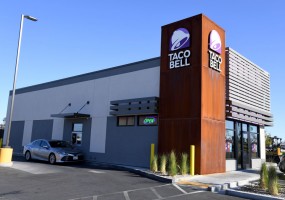Almost every academic assignment is based on facts. Most of your tasks are scientific and you ought to carry out decent research. When you are assigned such complex and responsible assignments as a research paper, coursework or dissertation, you cannot shoot blindly. You ought to be totally sure that you can trust the data you intend to use in your project.
So if you write a research paper, you have to use officially approved sources to support your thesis. It seems that there should be no problems with searching if you are to cover a popular topic. Information is enough to write thousands of good scientific projects. Nonetheless, some students begin to panic when they are assigned some rather specific topics. One of such is research about fast food.
The theme is widely discussed on the television and even in the street. However, it is rarely assigned for such important and complex projects. Many folks have a strong belief that they won't be able to find credible data in sufficient amounts. We are here to comfort you. There are multiple sources to get the desired data to write a good paper you need.
Make allowances for the following options:
- Printed resources.
- Non-printed resources.
- Electronic resources.
Only three options but they have various subtypes. We'll highlight all of them.
Source #1
It goes beyond all doubt that you should consider sources printed on the paper. This is the most ancient form of sharing information and experience (safe painting on the walls). You should never underestimate the power of the printed word. Regularly visit your college or university library, as well as some other libraries in your city or town.
Even some out-of-date facts may serve you well. Ancient books possess great knowledge and such exemplars are a rarity if you try to find them on the Internet. Oftentimes, they were the last salvation of many students.
You may like to narrow the searching angle. Consider the following options:
● Books. You can find books of various kinds and genres. These may be scientific and non-scientific books. Don't forget about various guides, manuals, textbooks, informative articles, etc. You'll surely come across the piece that can satisfy your research needs.
● Encyclopedias. This kind of paper printed sources should be mentioned separately. These books contain answers, definitions and clear explanations for every matter and issue. Besides, they are organized in a logical way - an alphabetical manner. Therefore, you'll find the needed explanations pretty fast.
● Bibliographies. At times, all a student needs is to read a bibliography. It's a specific piece, which gives an overview and links about the used informative sources in a concrete research project. Find works similar to your assignment and topic. Review the list of literature pieces that were used in the course of writing. Use those references to support your own thesis statement.
● Government publications. These are authentic and trustworthy sources as well. They contain official statistics, records and similar things that may be important for a scientific study. These publications are available in libraries.
Mind that you may also make use out of maps, atlases, dictionaries, newspapers, magazines, etc.
Source #2
You should think about non-print resources too. These are any type of media. Of course, you can also find some of them on the Internet or in local libraries.
These are:
● Educational and documental TV programs.
● Videos.
● CDs.
● Lectures.
● Speeches.
● Interviews.
● Surveys.
Source #3
Undoubtedly, one cannot omit electronic sources. Today, there is no problem in finding all sorts of data dedicated to various topics. All you need is access to the Internet. You should review online catalogs that keep official scientific data. Multiple informational websites also offer helpful data.
You may make use out of the following online resources:
● News portals.
● Social media.
● Forums.
● Workshops and lessons.
● EBooks.
● Periodical journals.
● Online libraries.
● Informative websites.
Of course, you should verify the credibility of such resources. However, you shouldn't be afraid of being let down. One may find millions of officially approved online resources.
Smart Tips on Finding What You Need
After we've learned the best informative options, we should define how to find them. Now, it's time to learn some additional tips on how to organize the process of searching. Begin with the two most obvious options borrowed from a professional writing company where you can buy research papers online written by academic experts.
Firstly, go to a local library and gather available data. A library may provide you with worthy pieces that can give answers to the most unique questions.
Secondly, use search engines such as Yahoo or Google. Begin with Wikipedia. This is a very popular resource, which helps millions of online users every day. Some people don't trust it. They have the full right to that because all articles can be edited by other users. Nonetheless, the level of credibility is really high. They are commonly verified by the professionals.
Thirdly, follow the trail of primary and secondary sources. The primary sources are found by a researcher. We have already discussed the way you can get them. The secondary ones are sources used in similar works. Find bibliographies of the most famous works related to your topic. Such a combination provides heaps of valuable information.
Try to mix your source types. These may be edited research paper collections, personal interviews, letters, diaries and something of the kind. Make allowances for scholarly databases, educational websites, etc. It's recommended finding at least one informative source per page.
* This is a contributed article and this content does not necessarily represent the views of foodworldnews.com









